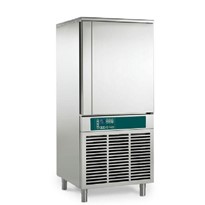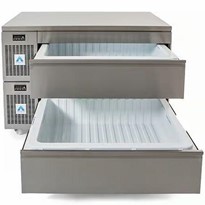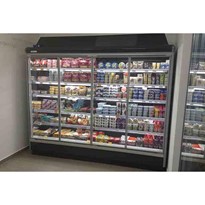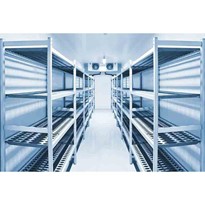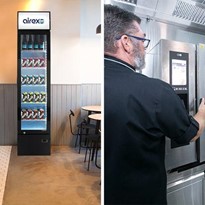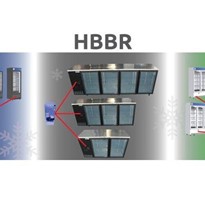However, the environmental impact of commercial refrigeration is significant, with energy consumption, greenhouse gas emissions, and refrigerant leaks having a negative impact on the environment.
Environmental Impact of Commercial Refrigeration
In this article, we will explore the environmental impact of commercial refrigeration and discuss ways to reduce it.
Refrigerants and Their Impact on the Environment
The refrigerants used in commercial refrigeration systems also impact the environment. Traditional refrigerants such as hydrofluorocarbons (HFCs) are potent greenhouse gases that have a high global warming potential.
In addition, refrigerant leaks from poorly maintained systems can also contribute to the depletion of the ozone layer.
Food Waste and Its Effect on the Environment
Commercial refrigeration also contributes to food waste, with food products being discarded due to spoilage or expiration. The disposal of food waste in landfills contributes to the release of methane, a potent greenhouse gas.
Ways to Reduce Environmental Impact of Commercial Refrigeration
Regular Maintenance and Proper Installation
Regular maintenance and proper installation of refrigeration systems can significantly reduce energy consumption and greenhouse gas emissions.
Proper maintenance can also help prevent refrigerant leaks, reducing the impact on the ozone layer.
Upgrading to Energy-Efficient Refrigeration Systems
Upgrading to energy-efficient refrigeration systems can reduce energy consumption and greenhouse gas emissions while also reducing operating costs.
Energy-efficient systems such as those with variable speed compressors and LED lighting can significantly reduce energy consumption.
Waste Reduction
Implementing a waste reduction plan can also help reduce the environmental impact of commercial refrigeration. This can include practices such as monitoring food inventory, ensuring proper storage temperatures, and donating excess food to food banks and charities.
Benefits of Reducing Environmental Impact of Commercial Refrigeration
Reduced Operating Costs
Reducing energy consumption through sustainable refrigeration practices can result in significant cost savings for businesses. This can include lower electricity bills, reduced maintenance costs, and extended equipment lifespan.
Improved Brand Image and Customer Loyalty
Implementing sustainable refrigeration practices can also improve a business's brand image and increase customer loyalty.
Consumers are increasingly concerned about the environmental impact of the products and services they purchase, and businesses that prioritise sustainability can attract and retain environmentally conscious customers.
Conclusion
The environmental impact of commercial refrigeration is significant, but businesses can take steps to reduce their impact through sustainable refrigeration practices.
By implementing regular maintenance, upgrading to energy-efficient systems, and implementing a waste reduction plan, businesses can reduce their operating costs, improve their brand image, and help protect the environment.
FAQs
How does commercial refrigeration impact the environment?
Commercial refrigeration impacts the environment through energy consumption, greenhouse gas emissions, refrigerant leaks, and food waste.
How can businesses reduce the environmental impact of commercial refrigeration?
Businesses can reduce the environmental impact of commercial refrigeration by implementing sustainable refrigeration practices such as regular maintenance, upgrading to energy-efficient systems, and implementing a waste reduction plan.
What are the benefits of reducing the environmental impact of commercial refrigeration?
Reducing the environmental impact of commercial refrigeration can result in reduced operating costs, a positive impact on the environment, and improved brand image and customer loyalty.




